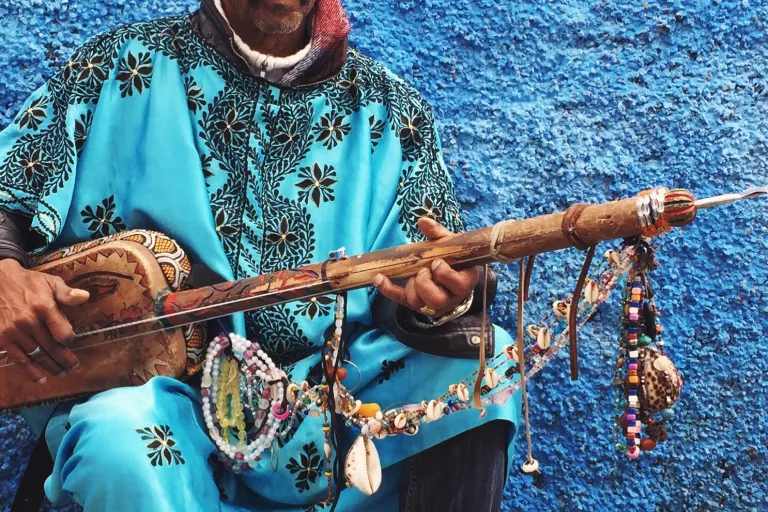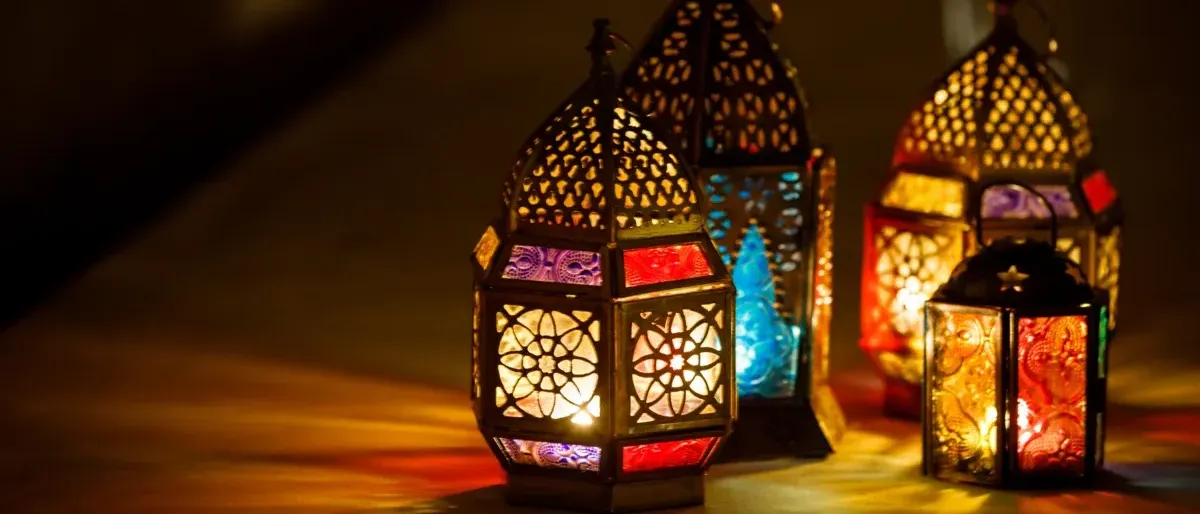Gnawa Folk Music: A Spiritual and Cultural Legacy of Morocco

Gnawa folk music is one of Morocco’s most captivating cultural treasures, rooted in centuries of history and steeped in spiritual significance. Originating from the descendants of Sub-Saharan African slaves brought to North Africa, Gnawa music represents a fusion of African, Berber, and Islamic traditions. Today, it is celebrated globally for its hypnotic rhythms, spiritual depth, and the vibrant cultural identity it embodies.
Origins and Historical Roots
The origins of Gnawa music trace back to Sub-Saharan Africa, particularly regions of present-day Mali, Senegal, and Sudan. The enslaved peoples who were brought to Morocco in the 16th century brought with them their spiritual practices, rituals, and music. Over time, these elements merged with local Moroccan traditions, evolving into what is now known as Gnawa.
Gnawa music is not merely entertainment; it is deeply tied to spiritual healing and religious practices. It is often performed during ceremonies known as “lilas,” which aim to invoke spiritual entities for healing and protection. These ceremonies reflect a blend of Islamic Sufi traditions and pre-Islamic African animist beliefs, making Gnawa music a unique expression of Morocco’s cultural diversity.
Instruments and Musical Elements
Gnawa music is characterized by its distinctive instruments and hypnotic rhythms. The centerpiece of Gnawa performances is the guembri (also known as sintir), a three-stringed lute carved from wood and covered with camel skin. The guembri produces deep, resonant tones that serve as the backbone of the music.
Another iconic feature of Gnawa music is the use of qraqeb, large iron castanets that produce a sharp, clattering rhythm. These instruments are played by the accompanying musicians, adding a percussive intensity to the performance. Together, the guembri and qraqeb create a trance-inducing soundscape that is both meditative and exhilarating.
Vocals are also a crucial element of Gnawa music. The maalem, or master musician, leads the performance with soulful chants, call-and-response singing, and invocations of spirits known as “mlouks.” The lyrics often draw from Islamic prayers, Quranic verses, and traditional African folklore, creating a spiritual narrative that resonates deeply with its audience.
The Role of Gnawa in Moroccan Culture
Gnawa music holds a sacred place in Moroccan culture, particularly among communities that practice its spiritual traditions. The lilas, or night-long ceremonies, are central to the Gnawa experience. These rituals aim to cleanse participants’ spirits and heal physical or emotional ailments through music and dance. The performance often culminates in a state of trance, as dancers move rhythmically to the guembri’s deep bass lines and the qraqeb’s relentless clatter.
Beyond its spiritual significance, Gnawa music has become a symbol of Moroccan identity and cultural heritage. The annual Essaouira Gnawa and World Music Festival, held in the coastal city of Essaouira, has brought global attention to this art form. The festival attracts thousands of visitors from around the world, blending traditional Gnawa performances with contemporary genres like jazz, blues, and rock, showcasing its versatility and universal appeal.
Gnawa’s Global Influence
In recent decades, Gnawa music has transcended Morocco’s borders, gaining recognition on the international stage. Renowned artists such as Maâlem Mahmoud Gania and Maâlem Hamid El Kasri have collaborated with global musicians, introducing Gnawa rhythms to audiences worldwide. Its influence can be heard in various genres, from jazz and blues to electronic music, further cementing its status as a cultural phenomenon.
Preservation and Modern Evolution
While Gnawa music continues to thrive, efforts are underway to preserve its traditional roots amid modern adaptations. UNESCO’s recognition of Gnawa as an Intangible Cultural Heritage of Humanity in 2019 highlights its cultural significance and the need for its preservation. Younger generations of Gnawa musicians are blending traditional elements with contemporary sounds, ensuring the art form remains relevant while staying true to its origins.
Experience the Magic of Gnawa
Gnawa folk music is more than a musical genre; it is a spiritual journey and a cultural bridge between Morocco’s past and present. Its hypnotic rhythms and profound spirituality invite listeners to connect with a rich tradition that transcends time and borders.
